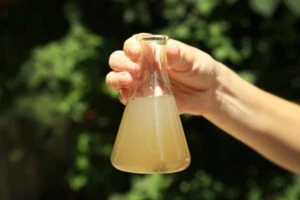
Please note that we are no longer accepting Camp Lejeune cases. We appreciate your interest and understanding. For information on other legal matters, please feel free to contact us.
Currently, only active-duty personnel, employees, sponsored visitors, and individuals on official business can access the Marine Corps Base Camp Lejeune. Civilians that try to gain entry without prior authorization will be turned back.
Visitors receive access to the Jacksonville, N.C., base only after going to the camp’s Visitor Control Center and having their authorization request approved.
Entering Camp Lejeune as a Visitor
Camp Lejeune operates under its self-implemented Defense Biometric Identification System (DBIDS) for all purposes of safety regarding base access for civilian employees, sponsored visitors, contractors, active-duty personnel, and their families.
Visitors must stop by the visitor center and go through the approval process, which includes identity verification and a criminal background check. If they receive approval, they get a DBIDS card or a temporary paper pass and authorization to enter the campgrounds.
Visitors operating a motor vehicle must also provide their driver’s license, registration, and proof of insurance. Active-duty service members can request authorization on their visitor’s behalf. Still, if they do not submit an electronic request form three days before the visitor’s arrival, the sponsored visitor will be subject to long wait times. The Camp Lejeune Visitor Center is open from 5 a.m. to 9 p.m. and closed on weekends and holidays, according to the U.S. Marine Corps.
Is There an Admission Fee for Visitors?
No. After completing the approval process, civilians receive a temporary entry pass free of charge. However, those sponsoring approved visitors must make accommodations for them.
Contractor Entry to Camp Lejeune
Before entry, all contractors and vendors must visit Camp Lejeune’s Contractor Vetting Office. They will either be given a temporary pass for up to 60-day access or a DBIDS pass if they must spend 61 days or more on the campgrounds.
What Happened at Camp Lejeune?
In 1982, officials found toxins in the water supply at Camp Lejeune. The chemicals were traced to an off-base dry cleaning facility’s improper waste disposal practices. Dumping the waste improperly polluted the waters with chemical compounds that would eventually reach the Tarawa Terrace water treatment plant. From there, Camp Lejeune’s personnel and others unknowingly were exposed to toxins in the drinking water and other water sources used for bathing and other activities.
This incident has since been discovered to have exposed countless individuals to a contaminated water source since the early 1950s and was the cause of numerous illnesses and health issues until most camp wells were temporarily closed in 1985.
We Will Be
There To Help
You All The Way
Has the Water Contamination at Camp Lejeune Since Been Cleaned?
Yes. The water has been declared safe to drink, but many base residents continue to suffer health problems due to prolonged exposure to the camp’s formerly polluted water supply.
U.S. Marines, independent contractors, and family members of those stationed at the base between August 1, 1953, and December 31, 1987, may be eligible to file a lawsuit to achieve financial compensation for any health issues that are directly associated with time spent at the base. The Camp Lejeune Justice Act of 2022, which went into effect on August 10, 2022, affords them this opportunity.
What Is Camp Lejeune?
Camp Lejeune is a 246-square-mile U.S. Marine Corps training facility built in the early 1940s. It specializes in training its soldiers in amphibious warfare and preparing them for expeditionary deployment.
The base’s area coverage was expanded throughout the years to eventually include over 14 miles of beach, making it an ideal location for water-based combat training. It is also stationed between two major ports, Wilmington and Morehead City, N.C.
As of 2022, the base occupies about 156,000 acres, and real estate properties therein are the current property of the military. This includes libraries, banks, credit unions, fitness centers, and recreational facilities.
Camp Lejeune is also home to several command units, such as the 2nd Marine Division, II Marine Expeditionary Forces, the 2nd Marine Logistics Group, and the United States Marine Corps School of Infantry. The base of operations is named after the late Lieutenant General John A. Lejeune, the 13th Commandant of the Marine Corps.
Can Civilians Visit Onslow Beach?
Civilians cannot enter Onslow Beach without authorization. Onslow Beach is part of Camp Lejeune. As such, visitors must go through the same DBIDS approval process to acquire beach access.
The beach is a vacation destination within the base camp and contains rental housing and amenities commonly found in such areas to accommodate visitors.
Where Is Camp Lejeune?
Marine Corps Base Camp Lejeune is in Onslow County in southeastern North Carolina. The main gate is east of Jacksonville, coming off Highway 23. You can find additional entrances near Hubert and Sinead’s Ferry.
Call Us Today for a Free Consultation About a Camp Lejeune Claim
The Fitch Law Firm LLC is ready to help you pursue damages for an illness you suffered after spending time at Camp Lejeune. We can explain your legal options after learning more about your situation.
Give us a call today for a free consultation. We will answer your questions, including whether civilians can visit Camp Lejeune and offer legal counsel that helps you take your next steps toward financial recovery.
